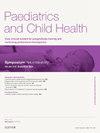儿科重症监护中的营养
Q3 Medicine
引用次数: 0
摘要
最佳营养是儿科重症监护病房重症儿童康复的基石,影响代谢稳定性、免疫功能和组织修复。本文探讨了目前儿科重症监护营养的实践,检查了危重疾病引起的代谢变化,评估能量和蛋白质需求的策略以及实施早期肠内或肠外营养的挑战。它强调了多学科保健团队在确保根据儿童不断变化的临床状况量身定制适当营养干预措施方面的作用。这篇短文讨论了选择正确喂养方式和方案的关键证据、指南和实际考虑,解决了诸如饲料不耐受、胃排空延迟以及误吸和感染等并发症的风险等问题。此外,还检查了肠外营养的时机及其延迟时的潜在益处,以及替代喂养选择,如肽基配方奶粉。本文旨在为优化危重儿科患者营养支持的最佳实践提供全面概述。本文章由计算机程序翻译,如有差异,请以英文原文为准。
Nutrition in paediatric critical care
Optimal nutrition is a cornerstone of recovery for critically ill children in the paediatric critical care unit, influencing metabolic stability, immune function, and tissue repair. This paper explores current practices in paediatric critical care nutrition, examining the metabolic changes induced by critical illness, strategies for assessing energy and protein requirements and the challenges in implementing early enteral or parenteral nutrition. It highlights the role of a multidisciplinary healthcare team in ensuring appropriate nutritional interventions tailored to the child's evolving clinical status. This short article discusses key evidence, guidelines, and practical considerations for choosing the right feeding route and regimen, addressing concerns such as feed intolerance, delayed gastric emptying, and the risk of complications like aspiration and infection. Additionally, the timing of parenteral nutrition and its potential benefits when delayed are examined, as well as alternative feeding options, such as peptide-based formulas. This paper aims to provide a comprehensive overview of best practices for optimizing nutritional support in critically ill paediatric patients.
求助全文
通过发布文献求助,成功后即可免费获取论文全文。
去求助
来源期刊

Paediatrics and Child Health (United Kingdom)
Medicine-Pediatrics, Perinatology and Child Health
CiteScore
1.20
自引率
0.00%
发文量
70
 求助内容:
求助内容: 应助结果提醒方式:
应助结果提醒方式:


